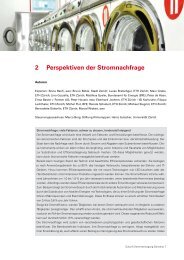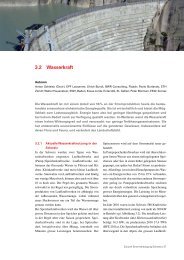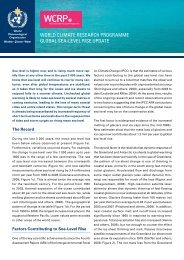Powering Europe - European Wind Energy Association
Powering Europe - European Wind Energy Association
Powering Europe - European Wind Energy Association
You also want an ePaper? Increase the reach of your titles
YUMPU automatically turns print PDFs into web optimized ePapers that Google loves.
DeVelOpmeNtSINtheeUrOpeaN<br />
electrIcItymarket<br />
3.1 Liberalised national<br />
markets<br />
The reason for liberalising the <strong>Europe</strong>an electricity<br />
market is to create a competitive and truly integrated<br />
electricity market in the <strong>Europe</strong>an Union. The first<br />
years of liberalisation were characterised by the opening<br />
of national markets for competition. As ownership<br />
unbundling of generation, transmission and distribution<br />
progresses, utility companies in their traditional<br />
form will cease to exist. The public obligation of the<br />
vertically integrated utility - to keep the lights on by<br />
controlling generation, transport and distribution - is<br />
no longer valid, and gives way to self-dispatch mechanisms.<br />
This means that while the transmission network<br />
is controlled by the TSO, the power plants are<br />
dispatched by the market participants.<br />
chApTEr 5 electrIcItymarketDeSIgN<br />
In order to guarantee network security, self-dispatch<br />
will be accompanied by balancing obligations. Each<br />
user of the transmission grid will be responsible for<br />
keeping his activities neutral with respect to the grid,<br />
that is, maintaining the equilibrium of injections to and<br />
withdrawals from the transmission system for its portfolio.<br />
As a consequence, in a liberalised market, grid<br />
users present the TSO with a balanced programme on<br />
a day-ahead basis, with a time resolution of between<br />
15 minutes and one hour. Imbalances (violations of<br />
the generation-load equilibrium of a particular portfolio)<br />
are settled ex-post with the TSO at an imbalance<br />
tariff that is unfavourable compared to market prices.<br />
The TSO keeps the responsibility for the balance of its<br />
control zone, contributing thus to overall system security.<br />
The means to do so, namely the reserve power<br />
plants, are contracted from market participants able<br />
to provide fast regulating power.<br />
123<br />
Photo: Thinkstock

















